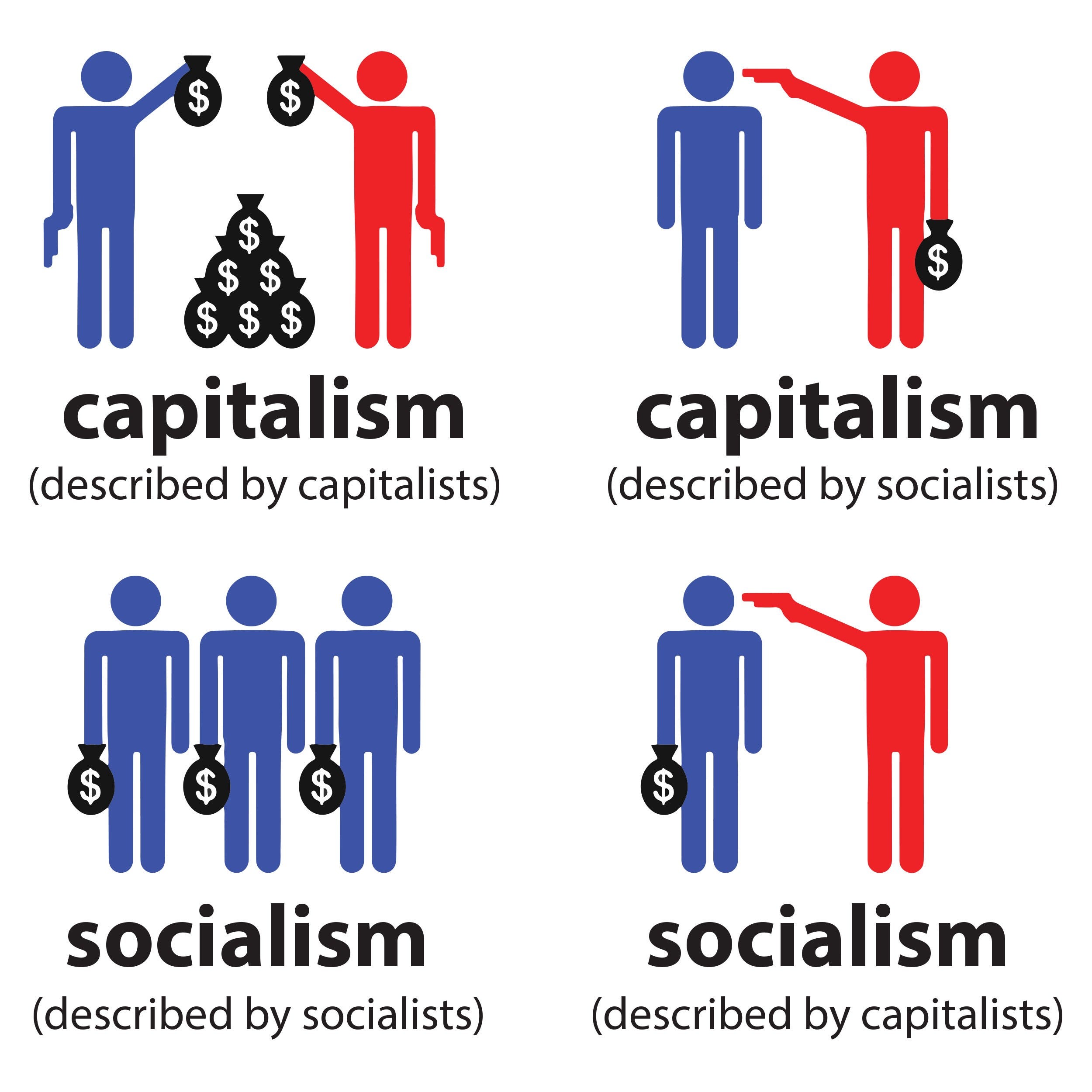Some people who say that real communism have never been tried are delusional idiots, but others actually propose a kind of co-op system.
Co-op is an organization where employees control the business and elect their own management. Logic is very clear: if in a democracy people elect president and parliament who govern the country, then people who work for the company should be entitled to elect their own managers. That way company will be democratic and fair.
In contrast private businesses are like authoritarian dictatorships where boss can do whatever he wishes.
Joint stock (public) companies do answer to stakeholders who control businesses and vote on board of directors, just like citizens vote on parliament in a democracy. The difference with co-op however is that shareholders and employees are not the same people. Because of that joint stock company is an organization that exploits employees in the interest of the shareholders.
From a moral to fairness point of view co-op has a clear advantage. However, does a co-op led to best outcomes.
Reasons for that is that co-op organization does have its flaws. Most notable is its typical resistance to change. Sure, some might argue that co-op can always vote in managers who will implement changes, but in reality, that is highly unlikely.
Co-op does not guarantee fairness for all either, a dominant group may emerge in the organization who would consistently push for their self-interest at expense of everyone else. A typical example of such would be a group of old employees who would wish to distribute perks and privileges to people based on their experience (time in company or even actual age on birth certificate) rather than ability or any other consideration. Such self-serving criterion such as experience would make working conditions untenable for young people.
That same approach would make company fall behind in technological department as old employees who struggle to learn new technology would simply prevent organization from modernizing. The reason for that is that as people age, they become less and less able to adapt to change and overtime become staunch conservatives who would cling to the way things always were. Such problem did affect Yugoslavia and USSR for example.
Of course, such outcomes are not always the case, sometimes when the right people are in company it would work properly and benefit all employees equally.
In a pre-automation world, I would have advocated for the co-op organization for half of all businesses. However, in the world ripe for total automatization this is unnecessary. Because of automation we need joint stock companies more than ever.
The reason is simple. Robots are expensive so a company needs a lot of money in a bulk sum investment to full automate itself. Joint stock company is just the tool to raise such money for the company as people who want to become a shareholder and benefit from future profits have to give money to the company. The more they will give, they greater their return will be once it becomes profitable.
Once they are paid for, robots are much cheaper than people. People has to be paid salary and other entitlements, while robots work 24/7 and only cost electricity and some occasional maintenance. Thus, once robots are paid for, regular profits would be much higher if company automates everything they can. That fact would incentivize investors to give money to such company.
Once everything is automated there will no longer be any need for employment, and we will finally live a happy utopian life.



No comments:
Post a Comment